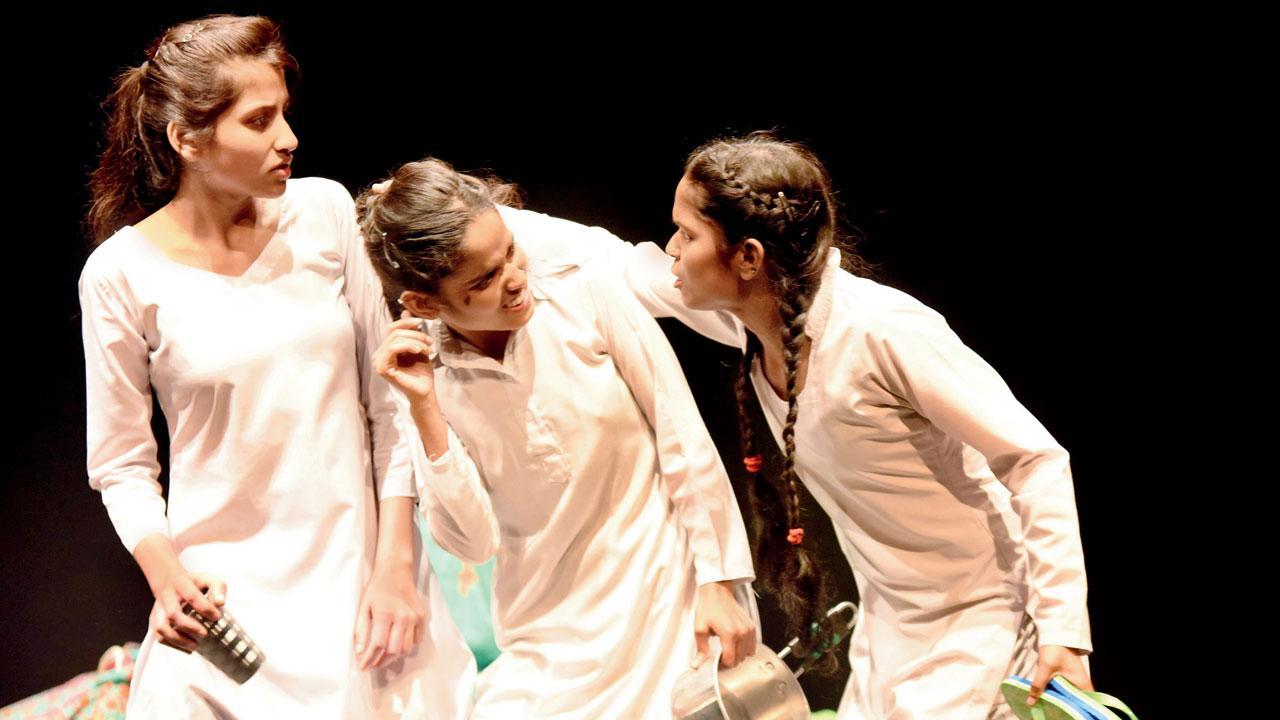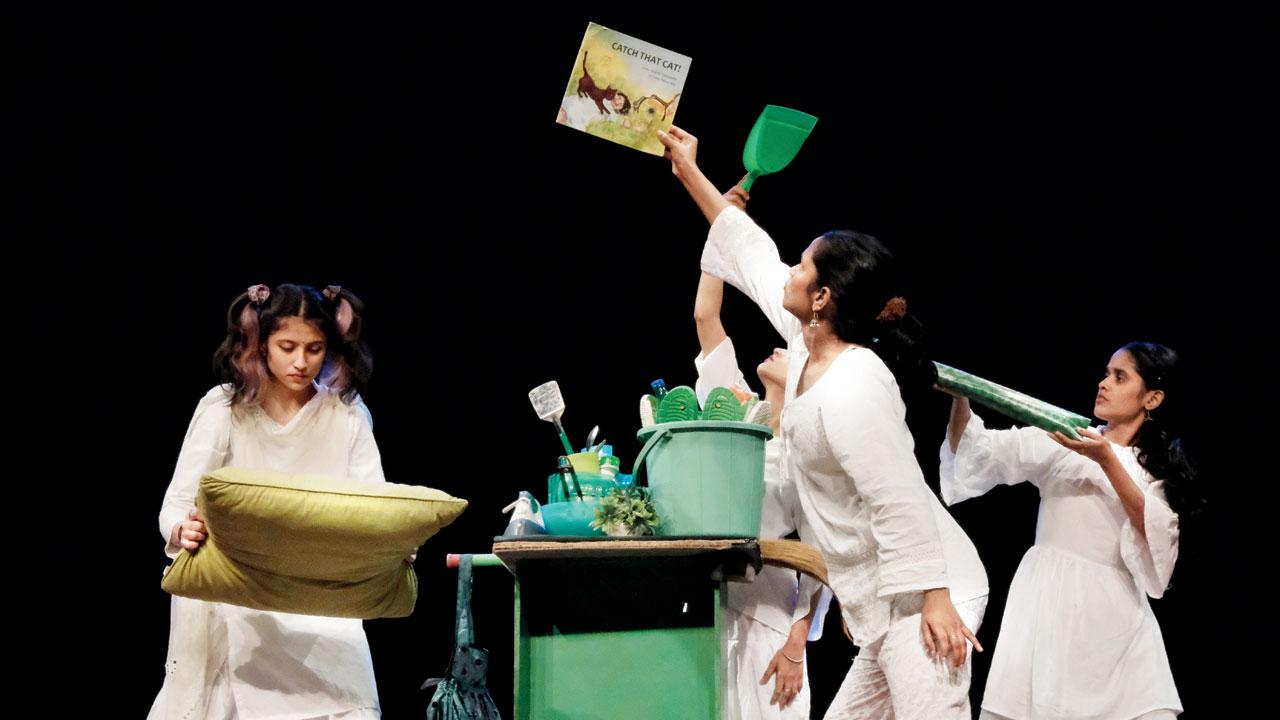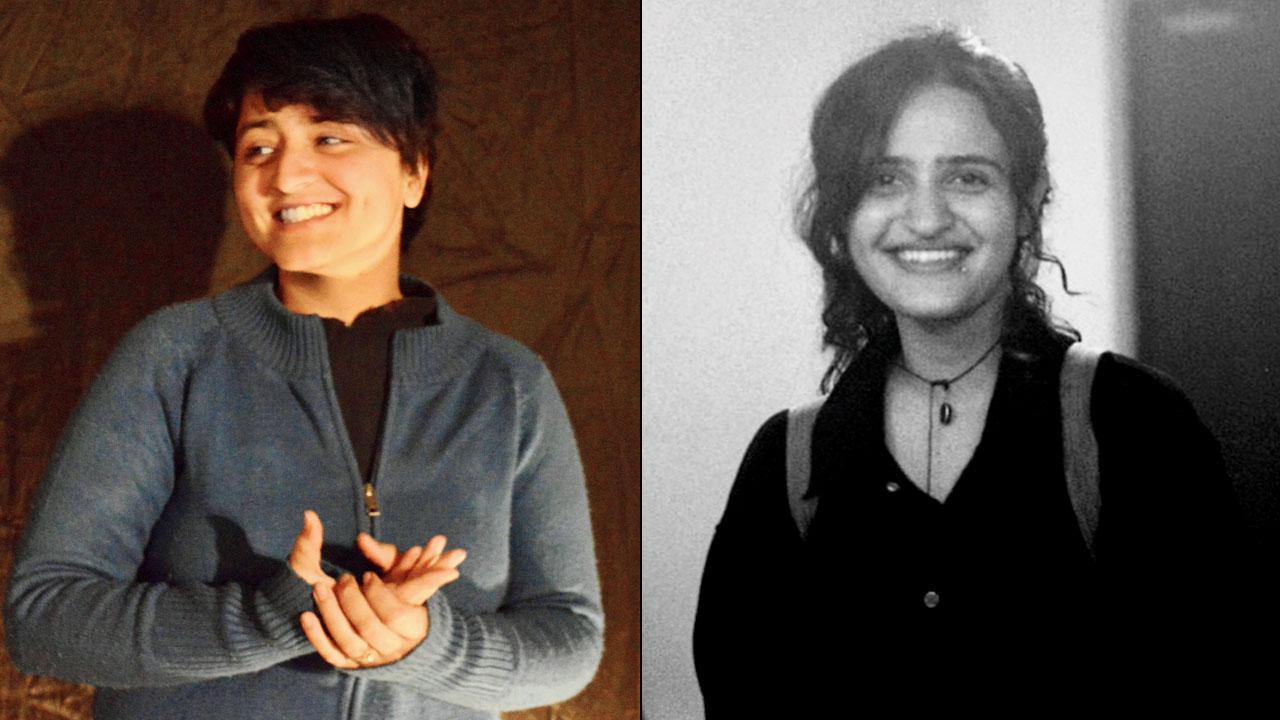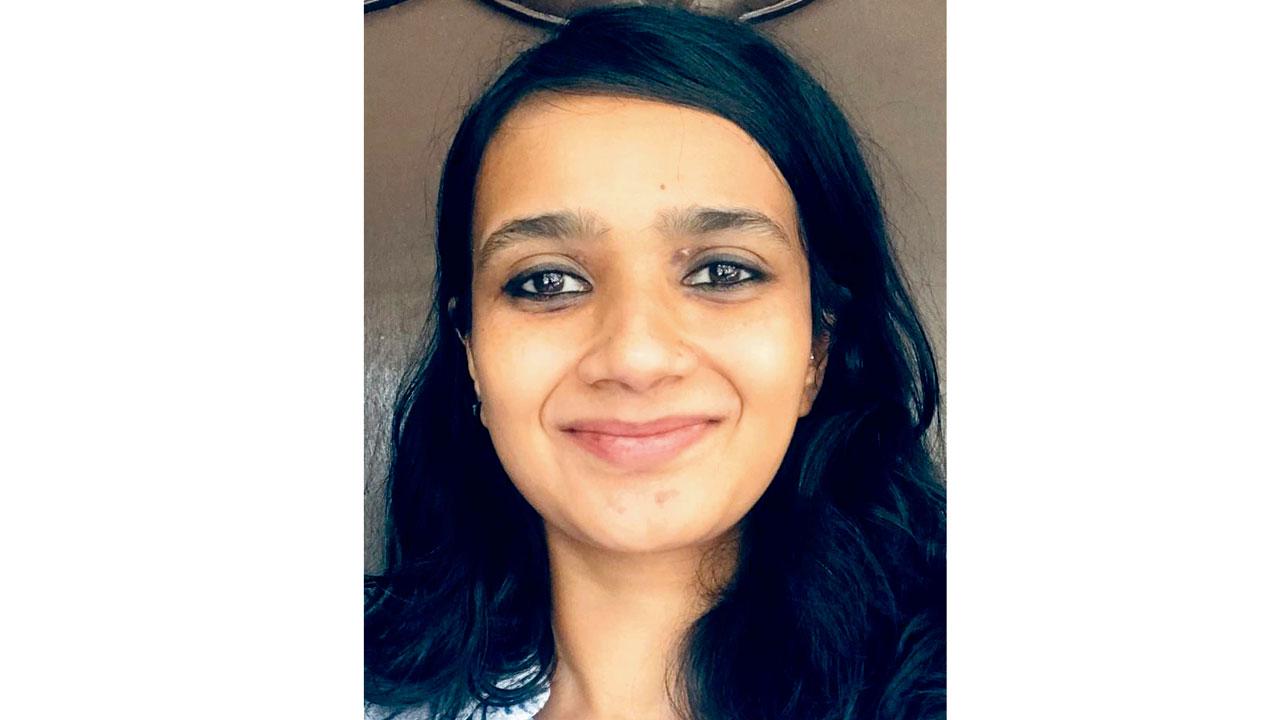The play, Bhagi Hui Ladkiyan, explores identity narratives of the cast from Delhi’s Hazrat Nizamuddin Basti through testimonial and physical theatre

Moments from Bhagi Hui Ladkiyan
Delhi-based Aagaaz Theatre Trust returns to Mumbai with Bhagi Hui Ladkiyan, which is centred on the exploration of one’s identity within, and breaking free from, the preconceived identity structures of the world. Founding member and director of the platform, Sanyukta Saha, shares, “The concept looks at the identities ascribed on our bodies whether that’s religion, class, gender, or where we live. It highlights a multiplicity of narratives, our existence outside various labels, and how, living in gendered bodies, we navigate public and private spaces.” The play doesn’t carve out a fictional world but uses testimonial theatre where the stories acted out are lived experiences of the four-member cast — young women from Hazrat Nizamuddin Basti in Delhi. “It is rooted in personal narratives and the actors have agency in the piece,” Saha says.
ADVERTISEMENT

The stories, being performed since its 2016 debut at Bengaluru fest, Gender Bender, undergo constant changes to represent the current journey of the actors’ lives. Director Dhwani Vij tells us that changes happen as much as a week before the performance and while being performed, adding, “These are not stories from the past, they are stories that the actors are dealing with right now. So a lot of realisations about that situation can take place on stage and that’s why the stories change.” She continues that to deal with such realisations, one needs the support of co-actors who have rehearsed protocols for adaptations. If you have watched previous runs of the play in 2019 at Versova’s Harkat Studios, this is all the more reason to catch it again and trace the nuances of many ongoing experiences.

Dhwani Vij and Namrata Sanghani
Noting the power of firsthand narratives, Harkat Studio’s Namrata Sanghani, who curates theatre performances, shares, “How you engage with yourself, your space and the people surrounding you reflects how you absorb the world around you. Decisions made in this process [testimonial theatre] allow for time and space to introspect. It directly translates what someone, as a gendered person, experiences and how they want to portray that to the world.”
Supporting this expression is the play’s use of physical theatre where objects like a newspaper, chair and bucket are used as story and world-building aids that invite audiences to experience the everydayness of the lives of the actors. These objects are mostly white, green and black that depict some of the colours prominently seen in the cast’s lives — black burqas, white school uniforms and a green basti.

Sanyukta Saha
The grassroots-level work of this community-based arts organisation is grounded in the Nizamuddin Basti, and aims at creating a space for children and young adults for curiosity, imagination, dialogue and expression through drama applications. Sanghani notes that through theatre processes, Aagaaz Theatre Trust aims at creating inclusive learning spaces. With this 60-minute play performed in Hindi, Saha, concludes, “Instead of a direct message for the audience to take away, we want to create a space for emotional exchange, and to go back with questions and connections.”
On: November 25, 26, 27; 7.30 pm
At: Harkat Studios, Aram Nagar, Versova, Andheri West
Log on to: insider.in
Cost: Rs 350
 Subscribe today by clicking the link and stay updated with the latest news!" Click here!
Subscribe today by clicking the link and stay updated with the latest news!" Click here!







